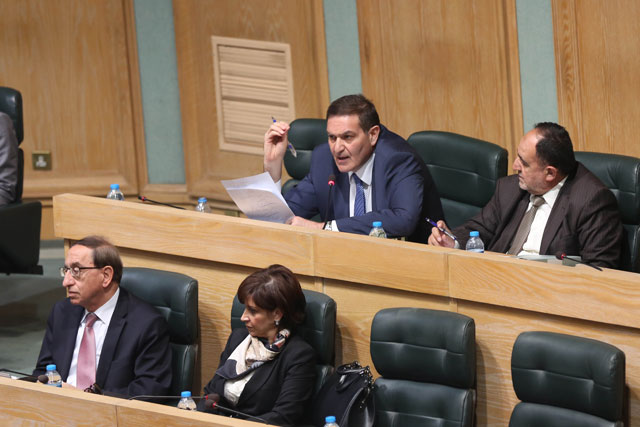AMMAN — Tuesday’s Lower House session saw a heated discussion between MP Mahmoud Kharabsheh and Jordan Atomic Energy Commission Chairman (JAEC) Khaled Toukan over the latter’s answers to a query by the MP about the envisioned nuclear programme.
During the afternoon oversight session, Kharabsheh (Balqa, 1st District) said the answers he received from the JAEC about his question on the country’s projected nuclear programme were “untrue”, claiming that the “unneeded” project will “deplete” public money.
Kharabsheh also said Jordan is financially and technically unable to move ahead with the nuclear programme, citing the country’s economic woes and its limited water resources.
He added that the 16th Parliament, of which Prime Minister Abdullah Ensour was a member, had recommended that the nuclear programme be frozen, claiming that Toukan has “concealed” information in a report by French firm AREVA which revealed that the Kingdom’s reserves are “commercially unviable”.
Kharabsheh called for consulting more experts before moving ahead with the nuclear programme.
In response to Kharabsheh’s remarks, Toukan said building a nuclear reactor is not like building a “garage”; it requires in-depth studies, and several international companies in the field have been consulted and have conducted scientific studies on the country’s nuclear project.
He added that 25 experts from the International Atomic Energy Agency have visited Jordan and released several reports on the selected sites for the nuclear projects, insisting that Jordan’s uranium reserves are “promising and commercially viable”.
The Kingdom’s nuclear power programme entails the establishment of a 1,000-megawatt nuclear reactor by the end of the next decade, and the construction of up to four plants to produce over half the country’s electricity needs.
The country’s first nuclear power plant is to be operated under a public-private partnership, a joint venture under which the government would own a 26-51 per cent equity share in the plant.
Nuclear proponents cite Jordan’s ongoing struggle for energy independence and the unreliability of Egyptian gas supplies among the reasons to accelerate Amman’s nuclear drive.
